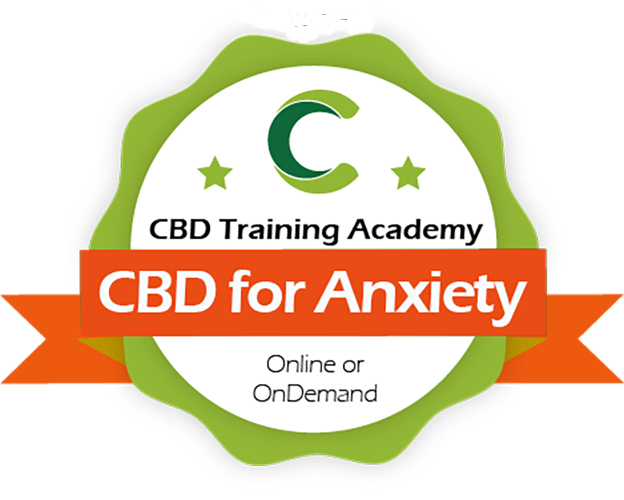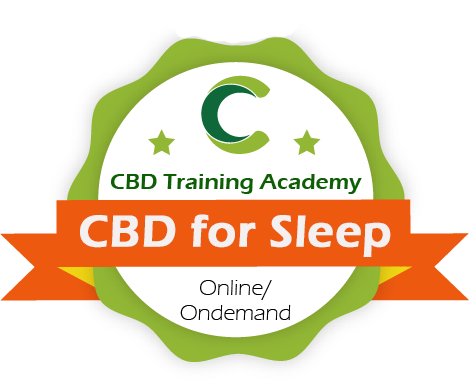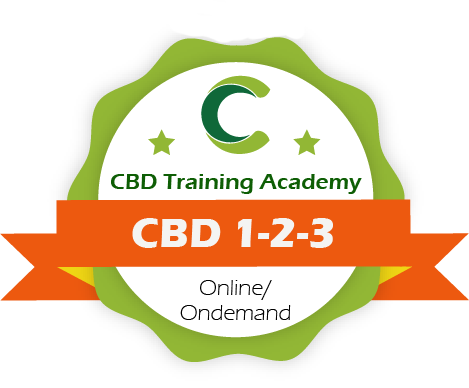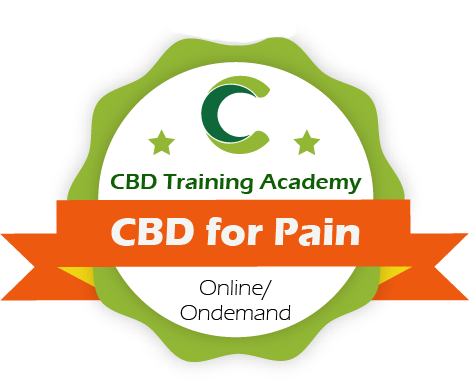Education
Why Get Educated About CBD?
We genuinely believe that “Knowledge is Power” and by getting to know more about CBD, you will be able to improve your health by getting to the right dosage, method of administration, and type of CBD product. Below we have a comprehensive FAQ section provided by our education partner, CBD Training Academy, plus access to some of their courses that can provide you with some of the essential answers you need regarding CBD.
Is CBD Legal?
The 2018 Farm Bill legalized the cultivation of industrial hemp (defined as cannabis with less than 0.3 percent THC) in the United States and removed various derivatives of hemp, including CBD, from the purview of the Drug Enforcement Administration (DEA) and the Controlled Substances Act. The Food and Drug Administration (FDA) however, views CBD as a pharmaceutical drug and because the FDA has already approved CBD as a pharmaceutical (Epidiolex) for treating two forms of pediatric epilepsy, the FDA maintains that it is illegal to sell hemp-derived CBD as a dietary supplement. The DEA, meanwhile, retains jurisdiction over CBD derived from marijuana (cannabis with more than 0.3 percent THC), which is still prohibited under federal law.
Are there any CBD studies?
Thousands of scientific studies have been carried out specifically on CBD. Project CBD is a non-profit organization strictly dedicated to documenting the research progress on this incredible drug.
What is a CBD Tincture & how should I take it?
A CBD tincture is another term for a CBD oil. In the cannabis industry the word “tincture” and “oil” are used interchangeably. A CBD tincture or CBD oil is a liquid concentrate which contains CBD. CBD tinctures are taken by placing the dose under the tongue where it can be absorbed sublingually – through the mucous membrane in the mouth.
Are CBD oil and hemp oil the same thing?
No. CBD oil is a medicinal product. CBD oil is a liquid concentrate of CBD. Another term for CBD oil is CBD tincture. Hemp oil is a food product made from pressed hemp seeds. Hemp oil is a highly nutritious food product which may or may not contain CBD.
Is it possible to take too much CBD?
A
How do I know how much CBD to take?
This one is tricky because it, of course, it depends on what you’re using the compound for, and also the quality of the CBD and how strong the product is. Most people consume between 10-50 mg of CBD per day total. (For reference, 1 mL of a potent oil might contain 50 mg of CBD.) Make sure you read the label on your product to ensure a proper serving size.
How long do you keep CBD tincture under my tongue?
Try to keep the CBD tincture under your tongue for 30 – 60 seconds or read the instructions on the CBD you have purchased to confirm that is long enough. The longer you can hold, usually the better it will absorb.
Is CBD Oil addictive?
While nearly anything in the world can be addictive, CBD is not known to be an addictive drug. In fact, CBD has shown strong potential to be a useful tool to help people break addictions to harmful substances.
How do I take CBD?
Most CBD products are taken orally via oil drops that are placed under the tongue and held for 60 seconds before swallowing. Topical creams and ointments are also effective, as is smoking or vaporizing CBD-rich marijuana strains like ACDC or Charlotte’s Web.
How long does it take for CBD to leave your system?
Above we described how long the direct effects of CBD last. But how long does it take CBD to leave your system completely? The time CBD stays detectable in your body depends on several factors, so it’s hard to give a specific time. Factors that play a role are for example how your body processes CBD, how often plus how much CBD is used and again the consumption method as mention earlier. So, let’s take a look at the science behind it:
- The half-life of CBD is around 1 to 2 days. This is the time it takes your body to break down half of the amount of CBD. Therefore it would take 3 to 6 days until the CBD completely left your system (because when half of the amount is left, it takes the same time until the half of that leaves again, and so on).
- There are several studies and experts that researched this topic. Those confirm that CBD takes between 2 to max 7 days to leave your system completely. CBD will not stay in your system for more than 7 days, so in any situation, CBD will be out of your body completely a week after taking it for sure.
- So, you can assume that if you only used a little bit of CBD it will most likely be out of your system in 2 to 3 days, and if you used a lot it will more likely take about 4 to 7 days.
Can a person overdose on CBD?
CBD has been shown to be safe to use in high doses. CBD will not cause a fatal overdose. However it is possible to take too much CBD. A consequence of taking too much CBD is the increased chance of negative side effects like lethargy or drowsiness.
What can CBD be used for?
Find out the answer to this and more with our Education Partner, CBD Training Academy. See courses above!
What are CBD edibles?
CBD edibles are food products infused with CBD. Common CBD edibles products are chocolates, gummy bears, or CBD gum. CBD edibles are an oral route of administration of CBD.
Does CBD come from marijuana or hemp? And what’s the difference between the two?
Marijuana and hemp are two different varieties of cannabis that come from the same species of plant (Cannabis sativa L). In general, CBD is found abundantly in both. However, it’s important to note that CBD is typically found in the seeds and stem of marijuana – not in the flowering buds (which is the part that people normally smoke). The hemp plant is an entirely different strain of cannabis that contains high quantities of CBD throughout (stem, buds, etc.), and practically zero traces of THC. If a hemp plant contains more than 0.3% THC, it is then technically a “marijuana” plant. Most all CBD-based products come from the industrial hemp plant.
I'd like to take CBD, but I'm afraid it will show up on a drug test. Is that true?
A high-quality CBD product with minimal THC is incredibly unlikely to show up on a drug test. However, low quality CBD products may contain more traces of THC than they claim, in which case it is possible for a screening to pick up on the drug. (Research has shown that people who consume 6 mg of THC per day have a 25% chance of failing a drug test. This translates to about 2,000 mg per day of CBD oil with a THC content of 0.3% or less).
How long does CBD oil last before it goes bad?
Just like any other product, CBD oil can expire. However, the good news is that CBD oil lasts very long before it goes bad. Depending on the carrier oil, high-quality CBD oil should last at least 1 year and up to even 2 years. If you use CBD oil regularly, there’s a very high chance that you already finished the tincture bottle before it goes bad. Be sure to keep an eye on the expiration date on the product. To keep your CBD oil fresh as long as possible, it’s important to store it correctly. Do this by keeping it in a cool, dry and dark place like a pantry.
Keep it away from the sun and places that are very cold, warm or humid. You should also keep CBD oil in the original bottle, since these bottles are designed to protect the oil. When you store CBD oil properly, it will last long before it goes bad while retaining its potency as long as possible. A very clear sign of expired CBD oil is when it looks “cloudy”. When your CBD oil expires it will become less potent, so it will work less effectively. Although we do recommend to throw CBD oil away when it’s expired, it most likely won’t be dangerous if you consume it.
How long does it take for CBD to take effect?
The length of time it takes for CBD to take effect will depend on the route of administration. The fastest effect will be felt from smoking or vaporization (onset of effects in minutes). Topical administration of CBD will be felt quickly as well. The next fastest effect will be felt from a sublingual dosage (onset of effects in 15 – 60 minutes). The slowest effect (but the longest lasting) will be felt from oral ingestion (onset felt in 90 minutes). Source: Cannabis Revealed.
What’s the difference between CBD and THC?
THC is the “high-producing” drug that causes euphoria when smoked or eaten. THC affects the brain by binding to naturally occurring CB-1 receptors in the central nervous system. CBD is a molecule that’s shaped differently and binds to CB-2 receptors in cell and body tissues outside the central nervous system.
Do you need a prescription for CBD?
No. CBD is not an FDA approved pharmaceutical or dietary supplement. You may purchase CBD without a prescription.
What is CBD Isolate?
In chemistry, to “isolate“ means to separate (a substance) into its purest form, free of other compounds. Isolated CBD is pure CBD without the presence of other cannaboids or terpenes.
What are the different ways to take CBD?
The most common way to take CBD is by using a tincture. These tinctures contain CBD oil. The best way to consume this CBD oil is by taking it ‘sublingually’. Sublingual means that you have to put the CBD drops under your tongue, as it will absorb through there. Make sure to keep the CBD oil under your tongue for at least 30 seconds to 1 minute (or longer if the CBD you’re using indicates to do so). A bonus tip is to swirl the oil around in your mouth after these minutes before swallowing it. Don’t swallow the CBD oil right away without letting it sit under your tongue, because your body only absorbs very little CBD this way. Absorbing the CBD oil sublingually will be way more effective.
The second most common way to use CBD is by vaping it. There are different ways to vape CBD, such as CBD cartridges, CBD pods, CBD flower, disposable pens and rechargeable vape devices (by using CBD vape juice).
Besides these two most common methods, there are several other ways to take CBD:
– Edibles; such as CBD gummies and CBD capsules.
– Drinking; like CBD tea and water.
– Smoking CBD flower.
– CBD concentrates; such as wax, distillate and shatter.
– Topicals for your skin; like CBD salve, cream, lotion, and patches.
– Suppositories.
What is the "Entourage Effect"?
The Entourage Effect results when the many components within the hemp plant interact with the body to produce a stronger influence than any one of those components alone—it’s a synergistic effect.
What is industrial Hemp?
Industrial hemp is the hemp plant which has been used historically to produce hemp seed oil, rope, paper, household items, clothing and now CBD extract. By law, industrial hemp strains must contain less than 0.3% THC.
How do I know if it's safe to buy CBD online?
To ensure the legality of buying CBD products online, you need to make sure the company you’re buying from is reputable and that the product was made from industrial hemp with less than 0.3% THC content. To ensure you are getting THC “free” CBD look for quality Broad Spectrum CBD that has a Certificate of Authenticity (a COA is a form that provides information about that particulate batch of CBD including how many mg per serving and how much THC is present in their product).
How is CBD isolated from the cannabis plant?
CO2 extraction isa common method to extract pure CBD isolate, in which state it exists as a clear/white crystal. This method is preferred over other methods because it leaves practically zero traces of chemical contaminants in the end product. Alcohol extraction is another method, wherein a liquid such as ethanol, butane, or hexane is run through raw plant material to extract the CBD and then evaporated to leave only the active cannabinoid. This can be a dangerous method because it’s prone to leaving excess traces of the butane or hexane chemicals in the extract. Also, infusing vegetable oil (i.e. olive oil) is another effective way of extracting CBD. All you do is grind up the raw plant material, decarboxylate (heat) it, and let it sit in boiling (100-deg Celsius) oil for about 2 hours.
What are Terpenes?
Terpenes are the primary constituents of the essential oils providing the scent and flavor of the plant. There are around 200 terpenes in cannabis. They are what give cannabis its distinct aroma and flavor. Terpenes have beneficial effects and work synergistically with cannabinoids like CBD and THC – this relationship is called the entourage effect.
Does CBD have any side effects and is it generally regarded as safe (GRAS)?
The only significant danger/side effect of the drug is in vaping CBD oils that were produced using a thinning agent, such as propylene glycol. When burned/vaped, propylene glycol produces formaldehyde, which is a known carcinogen. CBD oils produced by CO2 extraction are much safer and purer than oils that were produced with liquid alcohol/thinning agents. Other than that, most research has concluded that CBD is perfectly safe with no known side effects, though some users have reported drowsiness, lightheadedness, low blood pressure, and dry mouth.
What is Full Spectrum CBD (vs Broad Spectrum CBD)?
Full-spectrum CBD can come from both hemp and marijuana. Products that are made from hemp products must have a THC content at or lower than 0.3% to be sold in the U.S. It’s important to mention that since FULL spectrum CBD products may contain small amounts of THC, that it may be possible for users to test positive in a Marijuana test where as Broad Spectrum CBD does not have any detectable THC and is therefore considered less likely to make a user test positive in a drug test. Broad Spectrum, on the other hand means that it has the benefits of full spectrum without any of the concerns of THC. Broad Spectrum is a term used to define a CBD extract that has concentrated levels of CBD, with no detectable THC.
Can I cook with CBD?
Absolutely! CBD infused oils are a fantastic ingredient to cook with. See the blog for some popular recipes.
How long do the effects of CBD last?
How long the effects of CBD last also depends on the method of use, since each method has different absorption rates. For sublingual CBD drops, the effects last 4 to 6 hours on average. For vaping the effect duration is shorter at 2 to 3 hours. CBD edibles last the longest at about 6 hours. Keep in mind that CBD in edibles is absorbed less effectively, so more mg is required for the same effects.
Want to learn more about CBD?
There are lots of reasons to learn even more about CBD – first its one of those things that not many people know about so it’s great to learn more about dosing and what it’s good for and how to administer it to yourself, your parents and your friends. Second, it’s a new and rapidly changing field – dosages being sold are on the rise but does that mean you should take more? Third, there are all types of products being “infused” with CBD – CBD Gummies, CBD Lotions and even CBD Peanut Butter! Is that a good way to get your daily dose of CBD or is it all fluff? Fourth, the laws are changing rapidly as are the uses for CBD. Stay on top of what CBD can be used for. Those reasons and many more are enough to encourage you to check out the courses below from our partner, the CBD Training Academy.
Welcome to our course called CBD 1-2-3 with Jen Kerr! This course has been designed to teach anyone and everyone the basics they need to know to be able to source, purchase, take, use, and understand CBD. If you have aches and pains and have heard about CBD, how do you know how much you should take? And what type of CBD should you take? Learn it all with CBD 1-2-3!
Dr. Jeanette Jacknin gives an overview of what the endocannabinoid system is, and how it is uniquely involved in the pain cycle. She also discusses the recent scientific studies behind cannabinoids and neuropathic, arthritic, muscle, migraine and pelvic pain. And finally, she also includes a summary of what products are already on the market and what the future may hold.

This course provides a comprehensive exploration of Cannabidiol (CBD) and its potential benefits in managing anxiety. Participants will gain insights into the current research landscape, legal considerations, and practical considerations for using CBD as a potential therapeutic intervention for anxiety

Learn all about the benefits of CBD for sleep. Up to two-thirds of the adult population struggles with insomnia, so it’s no surprise that people are starting to explore CBD for sleep difficulties. Researchers are also investigating CBD for other sleep disorders like obstructive sleep apnea (OSA).


